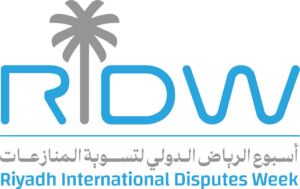The Kingdom of Saudi Arabia (“KSA”) has recently embarked on substantial public investment, both domestically and abroad. Major investments made by the Public Investment Fund, and giga-projects such as Neom, Red Sea Global and Diriyah Gate, clearly demonstrate the KSA’s intention to revolutionise its economy. However, often, with big investment comes the potential for big disputes. To mitigate risk and foster foreign investment in the country, the KSA has introduced several reforms to foster more efficient dispute resolution and become a dispute resolution hub. We summarise some key changes below.
The Civil Transactions Law
On 16 December 2023, the KSA’s new Civil Transactions Law (“CTL”) came into effect. The Saudi government intends for the CTL to help drive domestic and international investment. The CTL is significant as it codifies a number of commercial and Shariah principles, including acts that constitute breach of contract, evidential issues, and a new statute of limitations regime.
The CTL will provide greater certainty to transactions that are governed by Saudi law and will result in greater investor confidence.
SCCA Rules
Arbitration is a common means of dispute resolution among international parties. To foster a more efficient arbitration system in the Kingdom, the Saudi Center for Commercial Arbitration (“SCCA”) issued new Arbitration Rules (“Arbitration Rules”), with effect from 1 May 2023, which has been commented on in a previous blog post.
The Arbitration Rules are a welcome addition to the Saudi dispute resolution scene, and adopt several practices found among leading arbitral institutions. In particular, the Arbitration Rules establish an SCCA Court, an administrative body which will supervise arbitrations, and which may appoint or remove arbitrators, consolidate proceedings, and fix costs. The Arbitration Rules also allow for emergency arbitrations and expedited proceedings and foster the use of technology throughout the process.
We consider that the SCCA’s Arbitration Rules adopt many of the best practices found in other leading institutions and will make arbitrations more flexible, efficient, and effective. They will no doubt assist in help driving investor confidence in the years to come.
Mediation
Mediation is an effective form of alternate dispute resolution that is common in many jurisdictions but has traditionally been less practiced in the Middle East. The KSA has taken substantial steps to encourage the adoption of mediation. In 2022, it was a founding signatory of the United Nations Convention on International Settlement Agreements Resulting from Mediation (“Singapore Convention”), which aims to ensure the enforceability of agreements to mediation.
In 2023, the KSA published a draft mediation law, which promotes mediation as a form of dispute resolution. The draft law also requires that mediation proceedings be kept confidential. This is a welcome development, as it will help parties to be candid with one another and will allow for more efficient dispute resolution.
Digital Transformation for Judicial infrastructure
The process of resolving disputes before the Saudi courts has undergone extensive technological upgrades since the start of the Saudi Government’s Transformation Program (“GTP”) initiative, in 2016. This initiative encouraged the judicial system to work in a more effective way during COVID-19 pandemic period, and has been evolving ever since. The upgrades included the digitalization of POAs and the electronic filing of court submissions through the “NAJIZ” portal. This use of this electronic portal has proved to be very effective for filing applications to secure protective measures for plaintiffs and defendants, and also includes processes in respect of expedited requests to the courts amongst other services.
In our experience, these systems work effectively and create cost and time savings for end users in achieving fair and effective disputes resolution, and will in turn encourage further investor confidence in the KSA’s judicial and legal landscape.
Conclusion
The KSA is currently a place of rapid change, with massive new developments occurring in the physical landscape as well as the legal and regulatory environment. We consider that the recent changes in the KSA’s legal landscape, particularly the introduction of the CTL, the SCCA’s Arbitration Rules, and the anticipated mediation law will help to drive the investment and growth that the KSA is targeting.

We look forward to attending the SCCA24 Conference!
________________________
To make sure you do not miss out on regular updates from the Kluwer Arbitration Blog, please subscribe here. To submit a proposal for a blog post, please consult our Editorial Guidelines.


